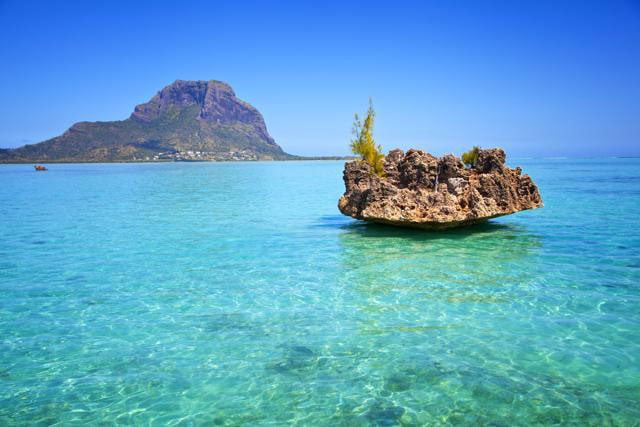'Lost continent' discovered under island of Mauritius in Indian Ocean
A previous study that found traces of the mineral in Mauritus was dismissed by the academic community

PHOTO: AFP
The island is actually sitting atop an undiscovered section of the 200-million-year-old "super-continent" Gondwana, which fragmented into Africa, South America, Antarctica, India and Australia nearly 180 million years ago, concluded a team of geologists headed by South Africa's University of Witwatersrand.
Record coral kill-off on Great Barrier Reef
Researchers have found a mineral on the rocks in Mauritius that is more than a few billion years old. Obscured by lava, the piece of crust could be a minuscule portion which split from the island of Madagascar, the team said in a paper published in the Nature Communications journal.
Lead author, Professor Lewis Ashwal said, "On the continents you find rocks that are over four billion years old, but you find nothing like that in the oceans, as this is where new rocks are formed."
“Mauritius is an island, and there is no rock older than 9 million years old on the island. However, by studying the rocks on the island, we have found zircons that are as old as 3 billion years,” he added.
Professor Ashwal went on to say, "The fact that we have found zircons of this age proves that there are much older crustal materials under Mauritius that could only have originated from a continent."
A previous study that found traces of the mineral in Mauritus was dismissed by the academic community in 2013.
Japan skating rink slammed for freezing 5,000 fish
Further, there may be more different sized fragments of the “undiscovered continent” spread over the Indian Ocean. These fragments will now jointly be referred to as "Mauritia".
“According to the new results, this break-up did not involve a simple splitting of the ancient super-continent of Gondwana, but rather, a complex splintering took place with fragments of continental crust of variable sizes left adrift within the evolving Indian Ocean basin," the professor said.
This article originally appeared on Independent



















COMMENTS
Comments are moderated and generally will be posted if they are on-topic and not abusive.
For more information, please see our Comments FAQ